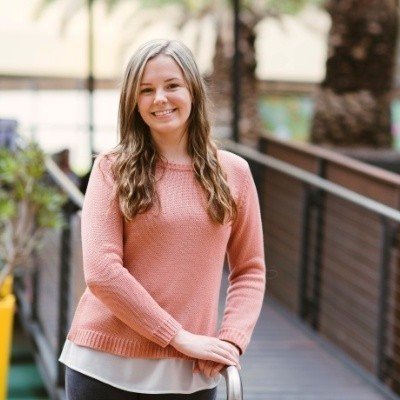ANZSCDB Early-Career Researcher Awards
Jump to: Instructions to Applicants | Past Award Winners
Instructions to Applicants
Purpose:
The aim of these awards is to encourage and support early-career researchers who are working towards independent research careers in Australia and New Zealand within the disciplines of cell and developmental biology. This stage is one of the most exciting in the career of a research scientist, during which skills are consolidated and areas of research expertise established. Up to two awards will be available, one to recognise a researcher working in Cell Biology and another for a researcher working in Developmental Biology.
Eligibility:
Candidates will:
• Have worked up to 5 years FTE in a post-Ph.D. research position at close of nomination
• Have been a financial member of ANZSCDB for at least one year
Nomination:
Candidates may self-nominate or be nominated by any financial member of ANZSCDB.
Selection criteria:
The principal criterion will be the excellence of the candidate, assessed via the following criteria:
a. Scientific achievements (i.e. what research the candidate has done) (40%) –Discoveries leading to high-quality publications as first author (but also last or corresponding author if relevant); indicators of quality such as editorials or other highlighters, cover features, citations, evidence of impact or influence on the field, commensurate with career stage.
b. Leadership, engagement, mentorship (i.e. what the candidate has done besides research) (40%) – Organisational roles including conference and seminar organisation; participation in peer-review; outreach, advocacy; teaching, supervision, mentorship; contributions to the discipline including contributions to the Society, all assessed commensurate with career stage.
c. National and/or international profile (i.e. how others have responded to what the candidate has done) (20%) – invitations to speak; invited reviews; invited appointment to committees; honours, awards and prizes; grants and Fellowships
ANZSCDB is committed to the principles of fairness, transparency, equity and diversity, including gender equality, in assessing and administering this award.
All criteria will be judged relative to opportunity, taking into account the following factors:
· Number of FTE years post-doctoral research conducted
· Mentoring, research support and funding available to the candidate
· Career interruptions, including those due to employment outside academia, periods of unemployment, part-time employment or other interruptions, childbirth, carer responsibilities, misadventure or illness
· Ongoing family, medical or other circumstances that may impact on research output
· Teaching, administrative, or other duties that may have impacted on research output
· Any other aspects of career or opportunities for research that are relevant to the assessment
· The career and productivity impact of COVID-19 and lock-downs will be taken into general consideration, applicants should feel free to note exceptional circumstances.
Required documentation:
1. A two-page document addressing the selection criteria (minimum 12-point font, 2cm margins).
2. A short (maximum half-page) statement addressing the opportunity issues described above, including the total length of any period of career interruption, an estimate of FTE available for scientific pursuits, the outputs of which are being evaluated, and hence a figure for total FTE in a postdoctoral research position at the time of submission
3. A list of the candidate’s most significant publications (maximum 5) since the award of a Ph.D., each annotated with a short (maximum 6-line) statement of the significance of the work and a description of the candidate’s role(s) in the work.
4. A full CV.
A single pdf file comprising all documents should be emailed c/o the ANZSCDB Secretariat (anzscdb@asnevents.net.au) by 5pm 15th May, 2025.
Judging:
Evaluation, shortlisting, and ranking of candidates will involve all members of the ANZSCDB Committee and the President. In situations where there is a tied vote or a lack of consensus, the President may cast the deciding vote or may choose to extend each award to more than one candidate.
A pool of least four candidates will be required in any given round for the competition to be considered valid.
ANZSCDB reserves the right to award joint candidates, or not confer an award, in any given round.
Prize: Winners will receive a certificate, a talk at a future scientific meeting of/or involving the Society and reimbursement of costs up to $1000 incurred to attend the meeting.
2024 ANZSCDB Early-Career Researcher Awardee
dr Pragathi Masamsetti
Children’s Medical Research Institute
Dr. Masamsetti is a post-doctoral researcher in the Embryology Unit. Her research is focused on understanding the spatial and temporal gene regulation of early embryo development.
2025 ANZSCDB Early-Career Researcher Awardees
dr Yasmyn E. Winstanley
The Robinson Research Institute, University of adelaide
Dr Winstanley is a postdoctoral researcher in the Ovarian Cell Biology group. Her research focusses on cellular mechanisms that regulate the first five days of embryo development.
Past Award Winners:
2023 - Jessica Greaney, Australian Regenerative Medicine Institute - Monash University
2022 - Lilian Schimmel, IMB, University of Queensland | Ivar Noordstra, IMB, University of Queensland
2021 - Max Nobis, Walter and Eliza Hall Institute of Medical Research
2020 - Yoon Lim, CCB, University of Adelaide | Sarah Boyle, CCB, University of Adelaide
2019 - Avnika Ruparelia, Monash University | Janita Manning, CCB, University of Adelaide



